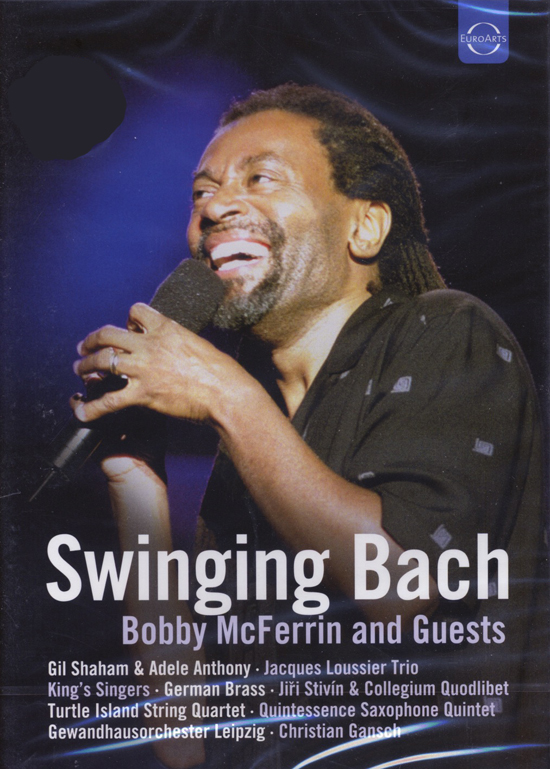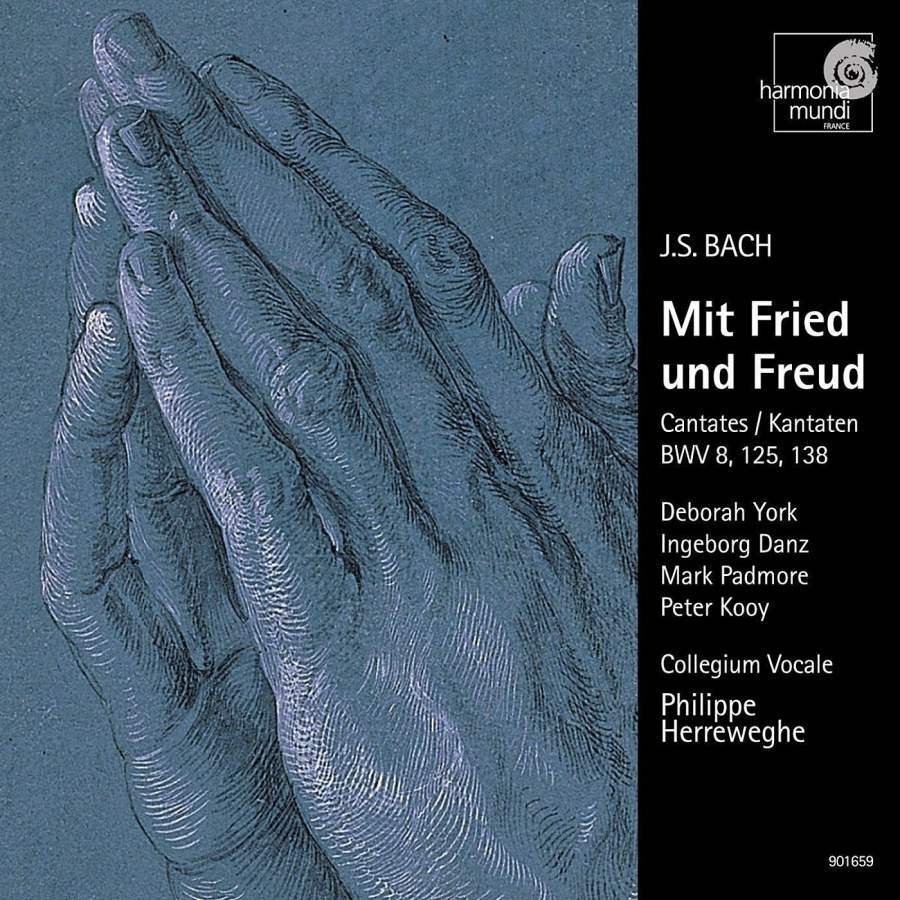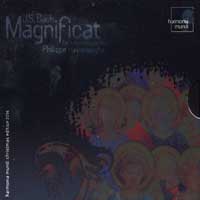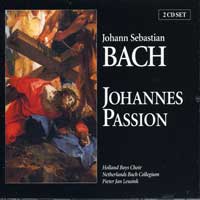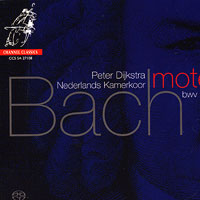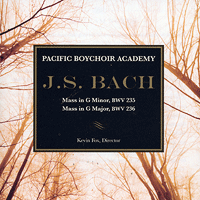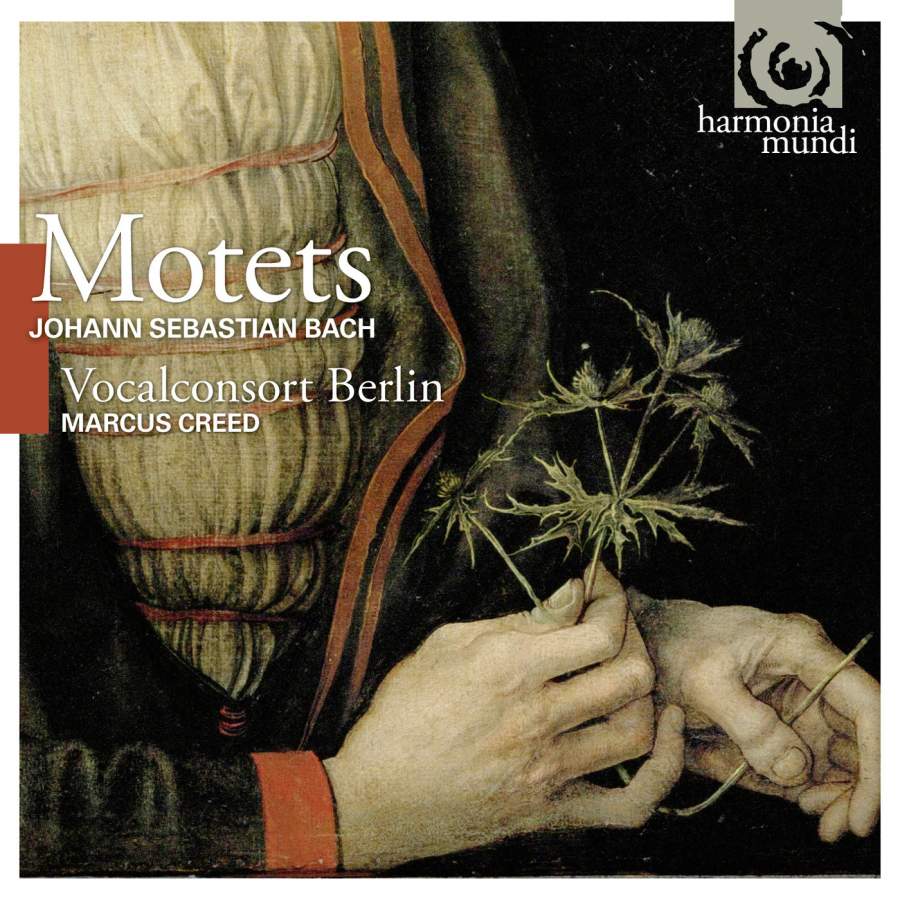In Celebration of the Human Voice - The Essential Musical Instrument
Home | Doo Wop | Barbershop | World | Contemporary | Christian | Vocal Jazz | Choral | Christmas | Instructional | Arrangements
Classical | Opera | Musicals | Personality | Young Singers | Disney | Videos | Songs | The Artists

Johann Sebastian Bach
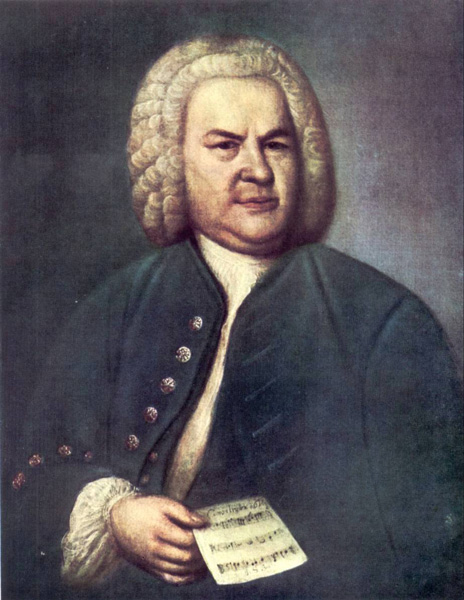
Born into a musical family, Bach received his earliest instruction from his father. After his father's death in 1695, Bach moved to Ohrdruf, where he lived and studied organ with his older brother Johann Christoph. He also received an education at schools in Eisenach, Ohrdruf, and Luneburg. Bach's first permanent positions were as organist in Arnstadt (1703-1707) and Muhlhausen (1707-1708). During these years, he performed, composed taught, and developed an interest in organ building. From 1708-1717 he was employed by Duke Wilhelm Ernst of Weimar, first as court organist, and after 1714, as concertmaster. During this period, he composed many of his best organ compositions; in his capacity as concertmaster, he was also expected to produce a cantata each month. In Weimar, Bach's style was influenced by his study of numerous Italian compositions (especially Vivaldi concertos). |
Arrangements | Recordings | Trax CDs
Recordings and DVDs
Displaying 1-8 of 8 items.
Bobby McFerrin : Swinging Bach "Swinging Bach" is a 122 minute documentary of a festival that took place in the old town square of Leipzig, Germany. before a large, appreciative audience (who are standing throughout, are introduced to the groups in both English and German by an attractive pair of emcees, and who get seriously rained on later in the show). Featured are 12 groups of different genres, mostly instrumental, all playing Bach pieces or variations on Bach pieces. The German Brass and the Gewandhausorchester Leipzig, directed by Christian Gansch, are followed by a jazz interpretation of "Fugue No. 5 in D Minor" by the Jacques Loussier Trio, then another Bach Concerto and Fugue by the Leipzig orchestra and the German Brass. Then comes one of our favorite pieces, Bobby McFerrin with the G. Leipzig, doing a wonderful faux (violin?) lead on "Orchestra Suite No. 3 in D Minor," followed by more German Brass, G. Leipzig and some nice pieces by two quintets, the Quintessence Saxophone Quintet and Turtle Island String Quintet. Another of our favorites follows, The King' Singers. with a brilliant a cappella medley of Bach samples, "Deconstructing Johann," with their own very funny added lyrics, which we would like to see written down so we could appreciate them more. Quite a few added features follow, our favorites being "Improvisation on "Wachet auf ruft uns de Stimme," featuring Bobby with the Loussier Trio, and a piece with Bobby and the G. Leipzig where he goes into one of his standard concert improvisational vocal riffs. "Swinging" is an amazing event with some particularly nice work by McFerrin and the King' Singers. Songlist: Concerto in D Major, BWV 972, 1st Movement, Allegro (German Brass), Orchestra Suite No. 1 in C Major, BWV 1066, Bouree I/II (Gewandhausorchester Leipsig, Christian Gansch Fugue No. 5 in D Major, BWV 850, from "The Well-Tempered Clavier" (Jacques Loussier Trio), Concerto for 2 Violins in D Minor, BWV 1043, Vivace (Gewandhausorchester Leipzig, Christian Gansch), Toccata and Fugue in D Minor, BWV 565 (German Brass), Orchestra Suite No. 3 in D Major, BWV 1068, Air (Bobby Mferrin, Gewandhausorchester Leipzig), Concerto in D Major, BWV 972, 3rd Movement, Allegro (German Brass), Fudge Fugue in G Minor (Quintessence Saxaphone Quintet), Concerto for 2 Violins in D Minor, BWV 1043, Allegro (Gewandhausorchester Leipzig, Christian Gansch), "Bach's Lunch," Variations on Themes by J.S. Bach (Turtle Island String Quartet), Snow What (Turtle Island String Quartet), Deconstructing Johann (King's Singers), Improvisation on "Wachet auf, ruft uns die Stimme" (Bobby McFerrin/Jacques Loussier Trio), Orchestra suite No. 3 in D Major, BWV 1068, Gavotte (Jacques Loussier Trio), "Tocatta & Funk & Choral" (Quintessence Saxophone Quintet), "Seven Steps to Bach" J.S. Bach/Miles Davies (Turtle Island String Quartet), Orchestra Suite No. 2 in B Minor, BWV 1067, Menuet/Badinerie (Jiri Stivin/ Gewandhausorchester Leipzig, Christian Gansch), "Jazz Medley," Part A (Jiri Stivin & Collegium Quodlibet), "jazz Medley," Part B (Jiri Stivin & Collegium Quodlibet), "Improvisation" (Bobby McFerrin), Brandenburg Concerto No. 3, BWV 1054, Allegro (Jacques Loussier Trio), Orchestra Suite no. 3 in D Major, BWV 1068, Gigue; End Credits Collegium Vocale : J S Bach - Mit Friend and Freud The theme of death and dying was one of the favourite themes of Bach and his contemporaries in their cantatas - that "musical theology" which was held in such high esteem in deeply Lutheran Northern Germany. Composed between 1723 and 1725, the three cantatas on this record treat the subject from different angles: the expectation of a "marvellous dawn", the final departure in peace and joy, and the vanity of earthly existence. There is "no consolation on earth", but only in heaven - what other composer, what other artist succeeded in expressing this consolation with such depth, or with such obviousness as Bach? Songlist: Liebster Gott, wenn werd ich sterben, Mit Fried und Freud ich fahr dahin, Warum betrubst du dich, mein Herz Collegium Vocale Gent : J.S. Bach - Magnificat Songlist: Kantate "Christen, Atzet Diesen Taq", Magnificat Netherlands Chamber Choir : Bach - Motets For the conductor Peter Dijkstra, "these works are among Bach's greatest compositions for vocal ensemble. The rhetorical power of Komm, Jesu, komm, the thrilling double-choir passages in Singet dem Herrn ein Neues Lied, the musical signature B-A-C-H at the end of Furchte dich nicht, every one of these demonstrates Bach's mastery and his ability to bring a text to vivid life." This analysis of the relationship between text and music is of great importance to Dijkstra, who leads The Netherlands Chamber Choir in thrilling new performances of the six Motets Songlist: Komm, Jesu, Komm BWV 229(1730), Der Geist Hilft Unser Schwachheit auf BWV 226 (1729), Lobet Den Herrn, Alle Heiden BWV 230, Jesu, Meine Freude BWV 227 (1723): Jesu, Mein Freude, Jesu, Meine Freude BWV 227 (1723): Unter Deinem Schirmen, Jesu, Meine Freude BWV 227 (1723): Trotz Dem Alten Drachen, Jesu, Meine Freude BWV 227 (1723): Weg Mit Allen Schatzen, Jesu, Meine Freude BWV 227 (1723): Gute Nacht, Jesu, Meine Freude BWV 227 (1723): Weicht, Ihr Trauer Geister, Furchte Dich Nicht BWV 228 (1726), Singet Dem Herrn Ein Neus Lied BWV 225 (1727): Singet Dem Herrn Ein Neus Lied, Singet Dem Herrn Ein Neus Lied BWV 225 (1727): Wie Sich ein Vater Erbarmet, Singet Dem Herrn Ein Neus Lied BWV 225 (1727): Lobet Den Hernn Pacific Boychoir : Johann Sebastian Bach In addition to the B-Minor Mass, Bach wrote four other masses. These "Lutheran" masses are from Bach's time at the Thomasschule in Leipzig. The Pacific Boychoir Academy, the only choir school on America's West Coast, has recorded two of these masses with boy sopranos and altos and an orchestra of Early Music specialists led by Kati Kyme. Songlist: Kyrie, Gloria, Gratias, Domine Fili, Qui tollis, Cum Sancto Spiritu, Kyrie, Gloria, Gratias, Domine Deus, Quoniam, Cum Sancto Spiritu The Swingle Singers : Jazz Sebastian Bach Vol II  This CD is a real treat for Swingles fans, as well as those just getting turned on to them, the original French Swingle Singers, featuring Ward himself doing all the arrangements and singing with the group! For those who are new to the Swingles, these are classic Bach pieces performed incredibly, unbelievably by voices only, singing in a seamless "scat-singing" style. Since their first record these 8 singers became, if possible, even more polished and refined in the years that separated the two volumes the Swingles were voted "Best Vocal Group in the World" several times. These are some of their best-known works: from the Fugue in G Major for organ, to the Concerto in D minor for 2 violins, the Choral from the Cantata BMV 147 to the Prelude in C major. Don't be misled by the names, this is all a cappella, with the exception of almost imperceptible drums. In the liner notes we find fascinating little odds and ends about the 10 pieces and such details as an "Ave Maria" being slipped into the score here or there. But know that this is marvelously original and inventive music and that the Swingles have remained true to the spirit that Bach instilled in his works, a profoundly human fervor and a joyously optimistic faith. As we know Johan Sebastian would, enjoy! Songlist: Vivace, Prelude and Fugue No. 10 in E minor, Choral, Gavotte, Prelude and Fugue No. 1 in C major, Fugue in G major, Adagio, Prelude and Fugue No. 3 in C sharp major, Choral, Fugue No. 21 in B flat major Vocalconsort Berlin : Motets The Motet is the oldest compositional genre in European polyphonic art music. Its history can be followed without interruption from the 12th century to the present day. The form was regular part of liturgical services in the two principle churches of Leipzig where JS Bach was employed from 1723 until his death in 1750. Scholars are divided as to the purpose of the six Motets. Though most of them were thought to be funeral music, they cover a lot of ground in terms of creativity, originality, choral and vocal techniques. Marcus Creed and the Vocalconsort Berlin offer small scale, intimate readings of these evergreen masterpieces. Songlist: Singet dem Herrn ein neues Lied, Der Geist hilft unser Schwachheit auf, Jesu, meine Freude, Furchte dich nicht, ich bin bei dir, Komm, Jesu, komm!, Lobet den Herrn, alle Heiden, Ich lasse dich nicht |
![]() Vocal Harmony Arrangements - Home
Vocal Harmony Arrangements - Home
Christian | Gospel | Standards | Musicals | Specialty | World | Barbershop | Contemporary | Vocal Jazz | Choral | Christmas
Mixed Voices | Female | Male | 8 Parts | 6 Parts | 5 Parts | 3 Parts | 2 Parts | Medleys | Solo | Folio Series | New Releases
Select a Category |
Want to Sing? - Find a Chorus Near You
List of Choruses by State | List of Choruses by City

